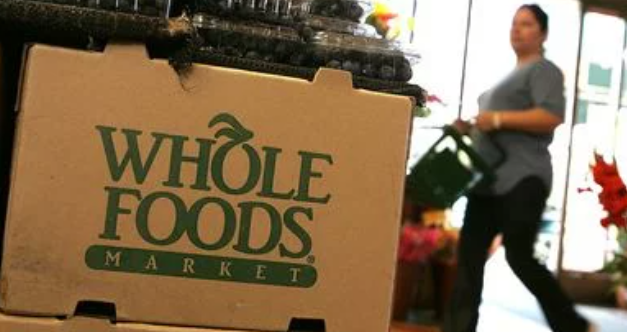
Whole Foods CEO John Mackey blasted socialism during a recent interview, explaining such economic policies cause increased poverty.
During a discussion hosted by the American Enterprise Institute on Tuesday, Mackey did not mince words — he said socialism is the “path of poverty.”
“They talk about ‘trickle-down wealth,’ but socialism is trickle-up poverty,” Mackey explained. “It just impoverishes everything.”
Mackey explained that capitalism, on the other hand, is the “greatest thing humanity has ever created,” and blamed intellectuals in universities for corrupting young people into thinking that capitalism is bad.
“Capitalism is the greatest thing humanity’s ever done. We’ve told a bad narrative, and we’ve let the enemies of business and the enemies of capitalism put out a narrative about us that’s wrong, it’s inaccurate — and it’s doing tremendous damage to the minds of young people,” Mackey said.
“The Marxists and socialists, the academic community is generally hostile to business. It always has been. This is not new,” he explained.
Socialism is favored by far-left progressive politicians like Rep. Alexandria Ocasio-Cortez (D-N.Y.) and Sen. Bernie Sanders (I-Vt.). Mackey went on to explain that not all progressivism is bad, but that socialism must be abandoned.
“We have to recognize that some of the progressive insights are important and they shouldn’t go away, but we can’t throw out capitalism and replace it with socialism, that will be a disaster,” Mackey said, Just The News reported.
“Socialism has been tried 42 times in the last 100 years, and 42 failures, it doesn’t work, it’s the wrong way. We have to keep capitalism, I would argue, we need conscious capitalism,” he continued.
According to Mackey, capitalism and business innovation overall is responsible for increased living conditions worldwide, has increased global literacy rates, and is even responsible for increasing life expectancy.
Business, therefore, should be evaluated “in terms of its value-creation,” Mackey said.
“For its customers, and all the jobs that it creates for its employees and the residual or tangential effects that happen when it trades with suppliers, who also trade for voluntary reasons — they’re benefitting and they’re prospering as a result,” the businessman explained.
Whole Foods, which was bought by Amazon in 2017, employs about 100,000 people, Mackey said.
*story by The Blaze